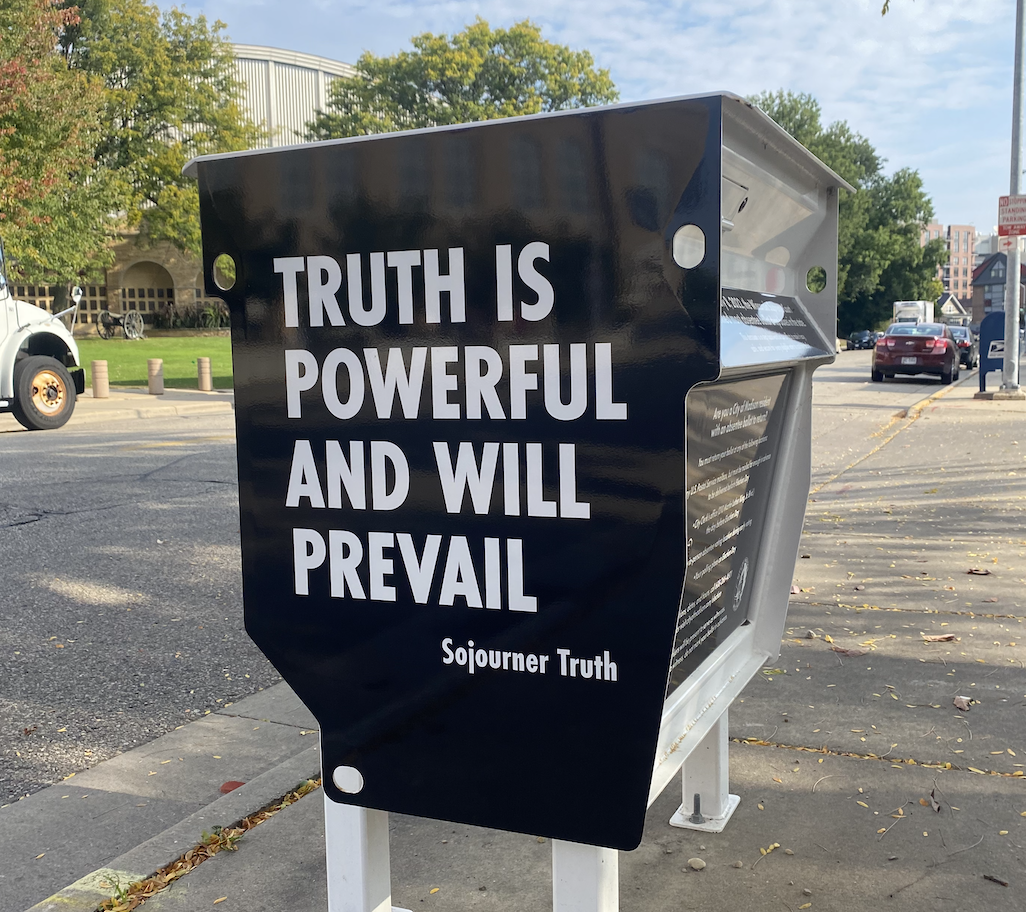The New York Times has long served as America’s “Paper of Record.” The newspaper has frequently broken the stories that have shaped history. It has become the last American paper to regularly publish key speeches and other political texts. When the top leaders of our country choose to express their opinions in print, they do so on The New York Times’ editorial page.
Oh how the mighty have fallen.
The fact that Jayson Blair plagiarized, faked datelines and fabricated details is, in and of itself, not enough to tarnish a paper with the credibility of the Times. But the aftermath of Blair’s resignation has proven far richer than any of the fiction Blair ever attempted to pass off as reality
It is now known that there were warning signs about Blair. Editors detected his reckless disregard for the truth long before this April. In fact, superiors of his made internal attempts to not only remove him from the fast track to the top but, indeed, from the paper altogether.
Actually, it appears that he was once removed from a newspaper. The University of Maryland’s student paper – hardly a symbol of journalistic integrity on par with the New York Times – forced Blair’s resignation when he proved unreliable and unstable. But even with this episode in his past, it seems that the brass at the Times couldn’t see things as clearly as a bunch of college students.
The fabrications aren’t where it ended with Blair. Newsweek has reported that Blair was drunk “a lot” and apparently even passed out at the Times once. The magazine also reported that at least select people around Blair knew of his cocaine usage. What could possibly compel a paper like the Times to keep a drug-using drunkard on staff?
One possible answer would appear to be race. The Times has long been a bastion of liberal thinking and it serves to reason that they have taken steps to avoid hypocrisy on the subject of affirmative action.
As brutal as that may sound, it is actually the preferable explanation. The Times looks a lot better if it admits it was wrong about reverse discrimination being a positive practice than if it has to fess-up that its ranks are polluted by a bunch of idiots who couldn’t see the problem with a lowlife who was been corrected an inordinate amount of times, rarely managed to produce an out-of-town receipt for reimbursement and once passed out drunk at the office.
But, alas, the Times‘ problems don’t stop with Blair.
Chris Hedges is also a Times reporter paid to deliver the news in a fair and unbiased manner.
Hedges gave the address at Rockford College’s spring commencement. Rather than offering graduates guidance as they move forward in life, he served up a commentary on the war in Iraq that was so inflammatory that he was booed off stage and his mic was pulled.
Some might question what the problem is with Hedges’ actions. After all, he was delivering a speech, not writing an article. The answer is that his credibility is now nearly as trashed as Blair’s. Every time he reaches for an adjective in an article, his objectiveness will be called into question.
One might counter that he was exercising his free speech. But the truth is that it is a great privilege to write for a paper like the New York Times and one of the tradeoffs of that privilege is forfeiting one’s right to make public statements of a highly opinionated nature. (With the notable exception of opinion writers.)
The Times again found itself in the news when it suspended Pulitzer Prize winning reporter Rick Bragg for failing to share a by-line with a stringer who did much of his legwork. Bragg has countered that what he did was common practice and has resigned in anger, feeling that he has been made a scapegoat.
Bragg is right that stringers are frequently not credited at the Times. In fact, this writer once did a series of interviews for a Times article only to be told that if the article ran, his name surely wouldn’t be attached.
Journalists often look upon by-lines as forms of credit. The truth, however, is that they are also tools of accountability. When the facts are wrong or the writing is poor, a by-line is a reader’s tool to criticize those involved with the article rather than the paper in its entirety. Imagine if Jayson Blair’s name had never run above an article. Therefore the cloak of accountability must extend to all those truly involved in the compilation of the piece. It may be degrading to a veteran reporter to share credit with two stringers and an intern who did his interviews for him, but that should simply serve as an incentive for him to either personally take charge or lower his ego a few notches.
Most recently, Times opinion columnist Maureen Dowd doctored a quote from President Bush in a futile attempt to discredit the Commander in Chief. This story is perhaps the most disturbing because Dowd never apologized and the Times never took action against her. She ran the correct quote in a later article, but Dowd did so without any acknowledgement that she had abused those very words not long before.
An old clich� seems to fit here rather well: when it rains, it pours.
Fortunately, the New York Times is a 152-year-old boat that should be able to weather Poseidon’s worst. But some crew members other than Blair and Bragg are going to have to be pushed overboard to help guide the vessel back into smooth waters. Chris Hedges must be one of those sacrificed. His action was so irresponsible that his loss of credibility is nearly total. Maureen Dowd, on the other hand, should be able to survive this one, although an apology would be proper.
Before the Times proceeds with any other maritime executions, it is important to note that hindsight is always 20/20. The warning signs may have been there with Blair but they were probably also there with a handful of others who turned out to be okay in the end – no quality business fires all of its employees who have “warning signs.” It is doubtful that Chris Hedges’ superiors saw the text of his speech before he gave it, just as it is unlikely that editors knew how much Rick Bragg was relying on a stringer or that Maureen Dowd had left a few vital words out. And it is important to note this because it shows that only individuals were knowingly wrongful and that the paper as a whole was simply sadly na�ve.
Still, the final person who must go is the captain that, whether he knew it or not, guided the ship into this horrendous storm. Indeed, Executive Editor Howell Raines can no longer be trusted to helm this country’s finest vessel. There is doubtlessly a smaller boat to be found – one that he may direct magnificently – but when it comes to America’s Paper of Record, storms of this magnitude are simply inexcusable.
Mac VerStandig ([email protected]) is a sophomore majoring in rhetorical studies and economics. He has done work as a Capital Hill stringer for The New York Times.







